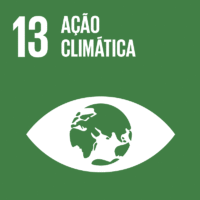This project seeks to analyze the emergence of a global administrative space in transnational climate policymaking and its impact on issue-specific policy discourses. The project draws on research on international bureaucracies (Knill and Bauer 2016; Bauer et al. 2017; Ege et al. 2020), transnational administration (Ladi and Stone 2015; Moloney and Stone 2020; Stone and Moloney 2019), and Global Administrative Spaces (Kingsbury et al. 2005; Chiti and Wessel 2011), as well as broader literature on global climate governance architecture (Aldy and Stavins 2007; Biermann et al. 2009; Keohane and Victor 2011). The bureaucratic side of these governance arrangements will be particularly examined. The concept of International or Transnational Administrative Spaces is relatively new in the fields of Public Administration and International Relations. Kingsbury et al. (2005, 20) identify five types of global administration that together characterize Global Administrative Spaces: administration by formal international organizations, administration based on collective action through transnational networks of cooperative agreements between national regulatory authorities, decentralized administration carried out by national regulatory authorities within contracts, networks or other cooperative regimes, administration through hybrid intergovernmental-private agreements, and administration by private institutions with regulatory functions. Empirically, the project is based on quantitative data collected through the social networks of International Public Administrations (IPAs). Further longitudinal data will be collected and analyzed using inferential social network analysis and natural language processing. This will allow for methodological triangulation to analyze the role of international organization secretariats in discourse coalitions on transnational climate policy. The proposed project systematically builds on previous research on social networks of international treaty secretariats in climate policy. This project aims to expand on this research by applying new methods to analyze the emergence of administrative structures beyond nation-states (Kingsbury, Krisch, and Stewart 2005) and contribute to further theory-building.
| Centro de Investigação | Grupo de Investigação | Papel no Projeto | Data de Início | Data de Fim |
|---|---|---|---|---|
| CIES-Iscte | -- | Parceiro | 2024-01-15 | 2027-01-14 |
| Instituição | País | Papel no Projeto | Data de Início | Data de Fim |
|---|---|---|---|---|
| University of Potsdam (University of Potsdam) | Alemanha | Líder | 2024-01-15 | 2027-01-14 |
| Nome | Afiliação | Papel no Projeto | Data de Início | Data de Fim |
|---|---|---|---|---|
| Helge Jörgens | Investigador Integrado (CIES-Iscte); | Investigador | 2024-01-15 | 2027-01-14 |
| Código/Referência | DOI do Financiamento | Tipo de Financiamento | Programa de Financiamento | Valor Financiado (Global) | Valor Financiado (Local) | Data de Início | Data de Fim |
|---|---|---|---|---|---|---|---|
| DFG Project Number: 511360421 | -- | Contrato | German Research Foundation (DFG) - Research Grants - Alemanha | na | na | 2024-01-15 | 2027-01-14 |
Não foram encontrados registos.
Não foram encontrados registos.
Não foram encontrados registos.
Não foram encontrados registos.
Não foram encontrados registos.
Com o objetivo de aumentar a investigação direcionada para o cumprimento dos Objetivos do Desenvolvimento Sustentável para 2030 das Nações Unidas, é disponibilizada no Ciência_Iscte a possibilidade de associação, quando aplicável, dos projetos científicos aos Objetivos do Desenvolvimento Sustentável. Estes são os Objetivos do Desenvolvimento Sustentável identificados para este projeto. Para uma informação detalhada dos Objetivos do Desenvolvimento Sustentável, clique aqui.

 English
English


